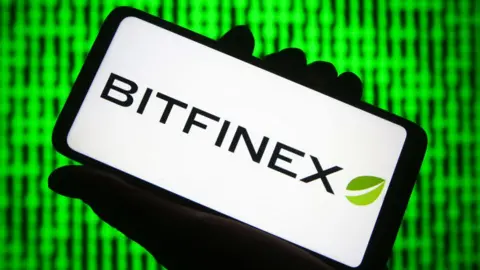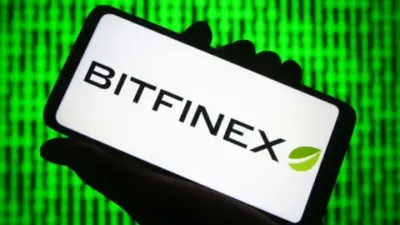A $9 billion recovery marks a milestone in the 2016 Bitfinex hack, where Ilya Lichtenstein stole 119,754 bitcoin.
The case advanced in 2022 after DOJ investigations led to guilty pleas from Lichtenstein and his wife for money laundering.
With an estimated value of more than $9 billion, this rescue is a big win after one of the riskiest cryptocurrency thefts ever. Ilya Lichtenstein planned the 2016 breach and broke into Bitfinex’s security systems to steal 119,754 bitcoin from customer accounts.
Bitfinex came up with a plan to fix the problem after the breach. As part of it, they lowered all user account amounts by 36% and gave them BFX tokens as payment.
You could exchange these BFX tokens for cash or equity in Ifinex, Bitfinex’s parent company. Ifinex also issued Recovery Right Tokens (RRT) to cover the chance of future recoveries.
Court Order on Bitfinex Hack
In 2022, the story took a major turn when the U.S. Department of Justice (DOJ) decrypted data that linked Lichtenstein and his wife Heather Morgan to the theft. Both people admitted they had laundered money, with Lichtenstein also admitting to the hack.
Working together was a big part of getting back 80% of the stolen bitcoin, which was the biggest asset seizure in DOJ history. It is still in the hands of the government.
The court said in January 2025 that Bitfinex and its users do not meet the state’s definition of “victims” under the Mandatory Victims Restitution Act. Despite this, the judge used plea deals that let the swap happen voluntarily.
The restitution plan covers all assets that can be directly linked to the hack. Other laundered funds, which are listed in government documents, will go through a separate process of forfeiture.
This decision gives third parties, like Bitfinex account users, a chance to argue against the terms of the restitution. They have until January 28, 2025, to make claims or objections to say that they should get a share of the recovered assets.
The Department of Justice has also set up a way for people who say they are harmed parties to send in their comments.
Bitfinex has said again that it will redeem the leftover Recovery Right Tokens that were given to users as part of its 2016 recovery efforts. These tokens were made so that people who lost money in the hack could get their money back.
The case shows how hard it is to get things back when someone has been wronged with cryptocurrency, where there are still disagreements about who the victim is and who owns the assets.
It is believed that the related proceedings and any complaints from customers will be very important in deciding how to divide up the remaining assets.
As the deadline of January 28 draws near, the outcome of this well-known case is likely to set important legal and procedural standards for restitution in the cryptocurrency environment as a whole.



